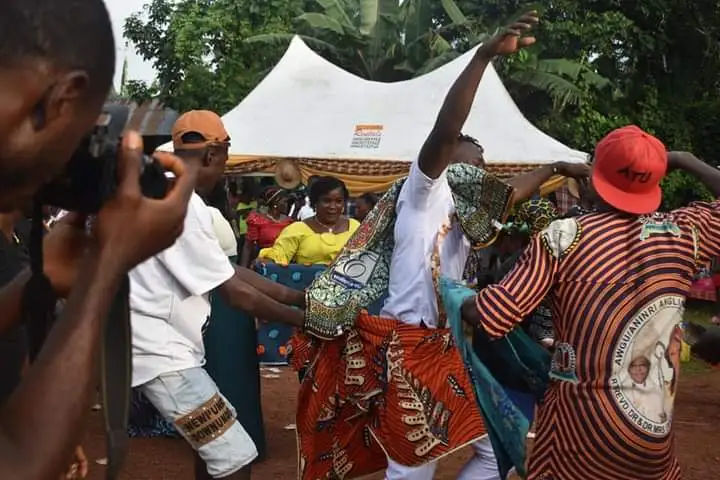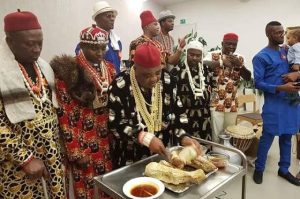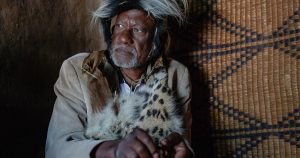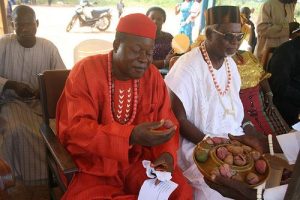Among the most important ancient rites of passage among the Igbo people of southeast Nigeria, especially in areas like Imo State, Iwa Akwa, often known as the Initiation into Manhood, is This event represents young men’s willingness to assume the obligations and privileges of manhood, therefore guiding them from adolescent to maturity. Deeply ingrained cultural practice reflecting the values, beliefs, and social structures of the Igbo culture is Iwa Akwa. Offering a thorough understanding of this important cultural occasion, this extensive essay investigates the background, meaning, ceremonies, and modern relevance of Iwa Akwa.
Historical Origins and Cultural Significance
Iwa Akwa has centuries of profound roots in Igbo culture. Reaching manhood in ancient Igbo culture was not only a question of age but also a symbol of successful completion of certain rituals and ceremonies. One of these crucial ceremonies, Iwa Akwa functioned as both a social and spiritual beginning for young males.
Iwa Akwa was intended historically to equip young males for the demands of adult life. This was a chance to see their resilience, stamina, and capacity for community service. The beginning also helped to maintain the core Igbo way of life principles of discipline, respect, and hard labor. Through this event, young men showed their preparedness to assume duties including those of warriors, farmers, spouses, and dads, therefore helping to ensure the continuation and survival of their family and community.
Apart from its pragmatic relevance, Iwa Akwa has great spiritual value. The initiation is seen as a normal voyage led and blessed by the ancestors. The young men are said to be watched over by their ancestors throughout the ritual to guarantee their smooth passage into manhood. A basic belief in Igbo cosmology, the spiritual side of Iwa Akwa strengthens the link between the living and the dead.
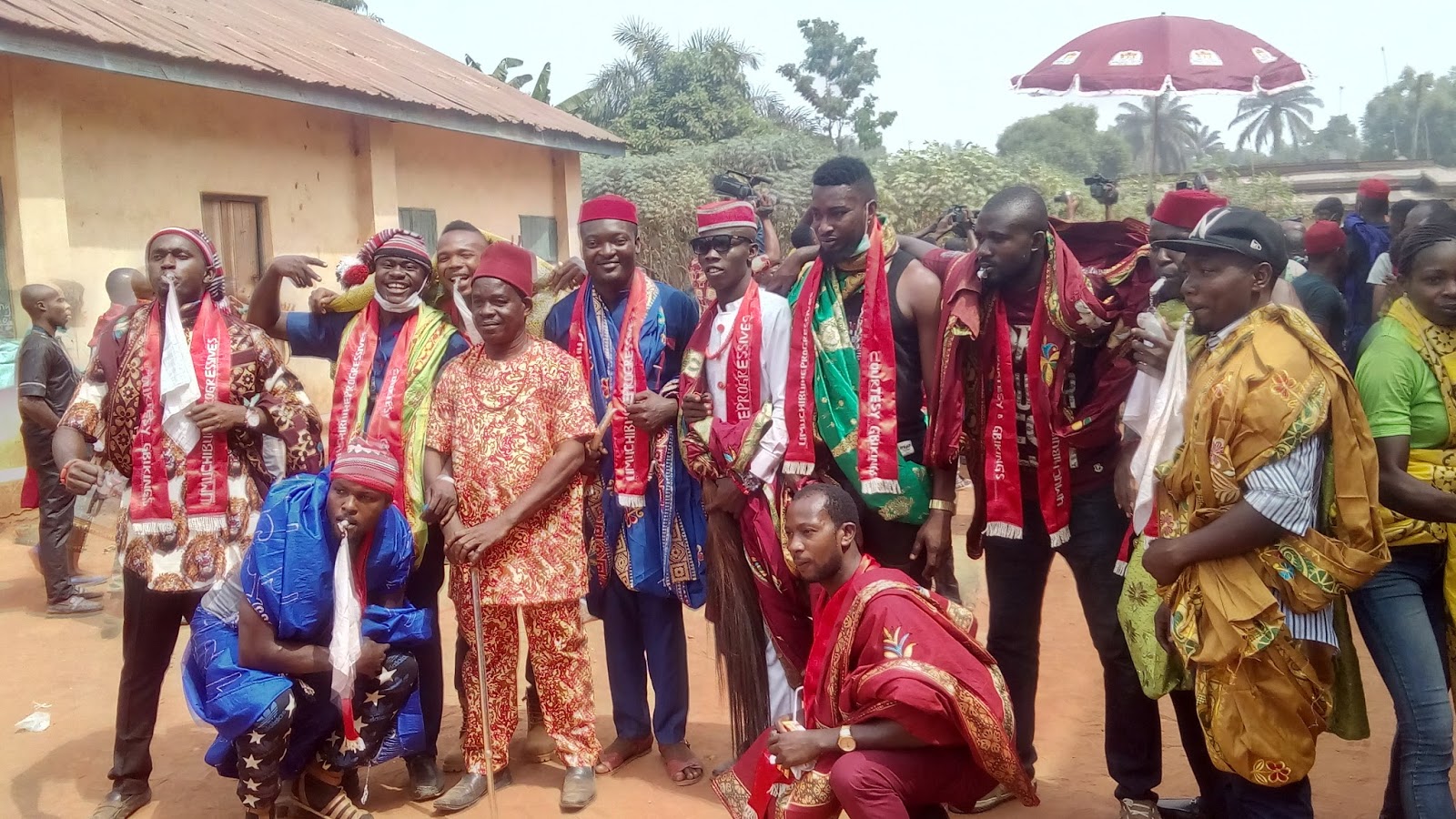
Ceremonies and Rituals
A highly ritualized ceremony, Iwa Akwa consists of several phases with cultural and symbolic significance. Usually spanning many days, the ritual is broken out with each day devoted to certain facets of the initiation.
Iwa Akwa’s preparation starts much ahead of the event. Usually between the ages of 18 and 25, young males to be initiated go through intensive training and study. This preparation include learning about Igbo customs, traditions, and manhood’s obligations. Since the obstacles the young men will encounter throughout the initiation call for physical strength and endurance, they are also expected to grow in these areas.
The event starts with a community meeting featuring elders, family members, and other attendees. Presented to the community in a solemn parade, the young men, clothed in traditional garb, Along with dance, drumming, and music, this procession exudes festivity and celebration. Paraded around the hamlet, the young men represent their preparedness to be acknowledged as adults.
Iwa Akwa’s main custom is the symbolic “wrapping” of the young men in traditional cloth, generally a piece of woven fabric called akwa. Deeply symbolic, this act of wrapping stands for the community’s protection and support as the young men become manhood. The fabric also represents the young men’s preparedness to assume adult duties and their new position as adults.
The young guys face many physical obstacles and tests after the wrapping ceremony. These tasks are meant to highlight their resilience, power, and endurance. Young males in certain areas could participate in long-distance running, wrestling contests, or other physically taxing pursuits. These challenges serve to teach the initiates discipline and endurance in addition to proving physical strength.
Following the physical trials, the young men engage in a sequence of spiritual ceremonies. Often include prayers, libations, and sacrifices to the ancestors, these rites Leading these ceremonies, the community’s elders call upon the blessings of the ancestors and pursue their defense for the young men. Emphasizing the continuity of the lineage and the need of preserving tradition, the spiritual component of the initiation helps the initiates to feel connected with their ancestors.
The official admission of the young men as adults marks the turning point of the Iwa Akwa ritual. Usually, gifts—such as cattle, tools, or other necessities for adult life—along with this awareness show themselves. New names or titles given to the young men also reflect their changed place in the society. For the young men and their families, this official acknowledgment is a moment of pride and delight as it signifies the effective end of the initiation process.
Cultural and Social Importance
In Igbo culture, Iwa Akwa is very culturally and socially important. The ritual is a potent emblem of the ideas and values that constitute Igbo way of life. Young males are taught discipline, respect, and responsibility via the initiation process—qualities necessary to preserve societal order and cohesiveness.
Additionally very important for strengthening community ties is the ceremony. Iwa Akwa promotes togetherness and solidarity by gathering people of the community to mark the passage of young men into adulthood. The shared experience of the event guarantees the continuation of the society and its customs, therefore strengthening the bonds between people and groups.
Apart from its social and cultural relevance, Iwa Akwa also helps in maintaining and spreading cultural information. The beginning phase offers younger generations a chance to learn about their duties, traditions, and background. The ritual is an opportunity for seniors to provide the initiates knowledge and direction so that the Igbo people’s customs and values may be handed on to next generations.

Contemporary Relevance
Iwa Akwa is still a colorful and valued legacy in modern Igbo culture. Many communities, both rural and urban, still hold the event despite the effects of modernism, urbanization, and globalization. Still, the discipline has developed to fit changing social dynamics and ways of life.
Some communities have modified the ritual to meet the current setting. The ceremony’s length, for instance, may be cut short, and the physical difficulties might be changed to mirror modern ideals and behaviors. Reflecting the flexibility of the custom, the event has also included contemporary clothes and technologies.
Notwithstanding these developments, Iwa Akwa’s basic principles and importance remain unaltered. The event is still a potent rite of passage, signifying the move from adolescence to adulthood and thereby strengthening the Igbo people’s cultural identity. Iwa Akwa’s ongoing performance is evidence of the strength of Igbo culture and the need to preserve cultural continuity in the face of development.
Conclusion
A great and significant rite of passage, Iwa Akwa is fundamental in the daily lives of the Igbo people. The event represents young men’s preparedness to embrace the obligations and privileges of manhood, therefore guiding them into maturity. By means of its customs, challenges, and spiritual practices, Iwa Akwa incites discipline, respect, and responsibility in the initiates, thereby preserving the continuation of Igbo traditions and social order.
Iwa Akwa has endured the test of time as a cultural habit, adjusting to changing social circumstances but maintaining its central relevance. Reflecting the principles and beliefs that have kept the Igbo people alive for millennia, the event nevertheless is a potent statement of Igbo identity and cultural pride. Iwa Akwa reminds us of the need of cultural preservation and the ongoing power of Igbo legacy in a world fast changing.
Please read all our stories on African Culture here
